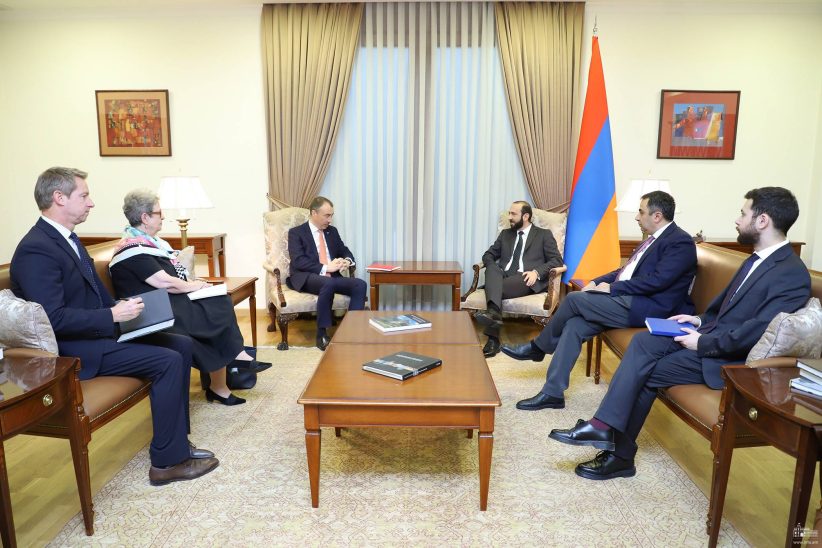By Mark Dovich
Toivo Klaar, the European Union’s special representative for the South Caucasus and the crisis in Georgia, paid visits to Baku on Wednesday and Yerevan on Thursday, calling his separate talks with high-level Armenian and Azerbaijani officials “excellent.”
In Baku, Klaar met with Deputy Prime Minister Shahin Mustafayev, while in Yerevan, he spoke with Deputy Prime Minister Mher Grigoryan in a meeting also joined by Andrea Wiktorin, the head of the EU delegation to Armenia.
According to his Twitter page, Klaar spoke with both sides about “reopening of communications,” a reference to a commitment made by both Armenia and Azerbaijan in the 2020 ceasefire agreement, brokered by Russia, to “unblock all economic and transport connections in the region.”
“Good to see strong commitment from both sides,” Klaar wrote.
Prior to his appointment as the EU’s South Caucasus representative in 2017, Klaar held various positions in the Estonian civil service, and also headed the EU Monitoring Mission in Georgia for two years.
Klaar’s visit to the region comes several weeks after European Council President Charles Michel hosted Armenian Prime Minister Nikol Pashinyan and Azerbaijani President Ilham Aliyev for talks in Brussels.
Those talks resulted in an agreement by Pashinyan and Aliyev to direct their respective foreign ministries to begin preparing a peace treaty and to establish a joint commission to delimit and demarcate their countries’ shared borders.
But notably, Klaar’s visit to the region also overlapped with a major trip by Pashinyan to Russia, where he met with Russian President Vladimir Putin and several other high-ranking officials.
That visit ended with Pashinyan and Putin agreeing to “intensify trilateral cooperation between Armenia, Russia, and Azerbaijan in order to promote the normalization of relations between Armenia and Azerbaijan.”
The two leaders also signed bilateral documents furthering Armenian-Russian cooperation in labor, justice, energy, education, and several other fields.
Taken together, Klaar’s trip to the region and Pashinyan’s visit to Russia highlight an emerging rivalry between the European Union and Russia over control of the Armenia-Azerbaijan peace process.
The escalating back-and-forth between Brussels and Moscow comes amid growing uncertainty over the future of the Minsk Group, a body formed by the Organization for Security and Co-operation in Europe that is meant to encourage the peaceful resolution of the conflict between Armenia and Azerbaijan.
France, Russia, and the United States co-chair the group, but rising tensions between the West and Russia over Ukraine have cast doubts on the group’s future ability to function.
About two weeks ago, Russian Foreign Minister Sergey Lavrov accused France and the United States of refusing to work with Russia via the Minsk Group, calling the West’s behavior “absolutely irresponsible.”
“I do not know what (the Minsk Group’s) future will be, as our so-called French and American partners, in a fever of Russophobia, are trying to cancel everything that has links with the Russian Federation,” he said at a press conference.
For their part, Paris and Washington have both since reaffirmed their commitment to resolving the Armenia-Azerbaijan conflict through Minsk Group mediation.
Still, as tensions over Ukraine threaten to derail the Minsk Group’s work, Russia and the European Union have, separately, been stepping in to fill the vacuum, with Moscow and Brussels both hosting key meetings between Armenian and Azerbaijani officials in recent months.
















